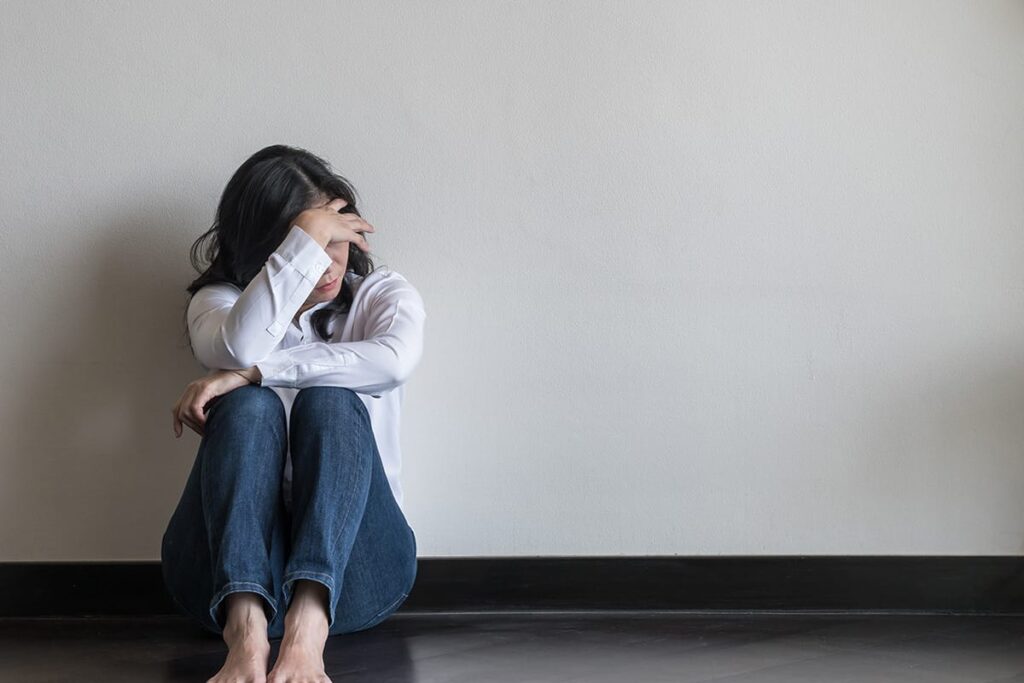Anxiety and addiction are two related conditions that often coexist. Many people struggling with anxiety may find themselves in the grip of addiction as well, creating a complex and challenging situation that can benefit from comprehensive treatment. When you or a loved one deal with co-occurring disorders like anxiety and addiction, professional resources can provide the support that makes the weight of these conditions feel lifted, and recovery seem possible.
BlueCrest Health Group specializes in treating co-occurring disorders in our anxiety and addiction treatment program. After receiving a dual diagnosis, understanding the way forward can be difficult. We make it easy to realize the best way forward through accessible resources and continuous, compassionate support in our evidence-based programs. Call 888.340.2214 to discover the treatment that can change your life.
Is There a Connection Between Anxiety and Addiction?
Yes, there is a significant connection between anxiety and addiction. Anxiety disorders can lead to substance use as a form of self-medication, creating a cycle of dependency. Often, when a person is treated for substance abuse, anxiety issues can be found at the root of the addiction.
Sometimes, extended substance abuse can result in anxiety symptoms. As addiction changes brain chemistry, normal thought patterns and emotions can be impacted. These thought and behavior cycles continuously influence one another, creating a seemingly endless loop.
The Cyclical Thoughts of Anxiety
Anxiety is characterized by persistent, excessive worries that don’t go away even in the absence of a stressor. These cyclical thoughts can be debilitating, leading to physical symptoms such as insomnia, restlessness, and difficulty concentrating. In an attempt to manage these feelings, individuals may turn to substances such as alcohol or drugs, which can momentarily alleviate their distress but ultimately worsen the issue.
How Substance Use Can Feel Like a Relief
For those struggling with anxiety, substance use can initially seem like an effective coping mechanism. Substances may provide temporary relief from the discomfort of anxiety, creating a sense of calm and relaxation. However, this is a dangerous path as it often leads to dependency and addiction, further complicating mental health conditions.
Anxiety isn’t the only common co-occurring disorder. Addiction can stem from and influence other mental health issues, like depression, bipolar disorders, and post-traumatic stress disorder (PTSD). Professional treatment can help those struggling with any combination of these conditions address the root cause of their addiction in order to reduce symptoms and find lasting recovery.
Overcoming the Anxiety and Addiction Connection
Breaking the cycle of anxiety and addiction is possible, but it requires comprehensive treatment that addresses both disorders simultaneously. Some common therapies and approaches include:
- Cognitive-behavioral therapy (CBT) – This evidence-based treatment helps to identify and change unhealthy cognitive patterns such as negative thinking and unrealistic expectations
- Dialectical behavior therapy (DBT) – A type of CBT that focuses on teaching emotional regulation skills to help manage distress
- Motivational interviewing – An approach used to motivate individuals by helping them recognize their own- strengths and values
At BlueCrest Health Group, our specialized treatment program provides the resources needed to manage both anxiety and addiction. With personalized care plans based on evidence-based approaches, we provide the tools that can lead you or a loved one down the path of recovery.
Call BlueCrest Health Group to Start Dual Diagnosis Treatment
Deafening anxieties and the physical symptoms of addiction can make it difficult to find a way forward. But, with professional treatment programs designed to address both anxiety and addiction, comprehensive care can be achieved. At BlueCrest Health Group, our team is dedicated to helping individuals struggling with co-occurring disorders live healthier, more fulfilling lives. We also offer level-of-care assessments to provide a clearer understanding of mental health and addiction symptoms, as well as appropriate treatment options.
Call 888.340.2214 or contact us online now to get the help you or a loved one needs.

